School Highlights
Miller-Motte College-Raleigh serves 354 students (97% of students are full-time).
The college's student:teacher ratio of 8:1 is lower than the state community college average of 13:1.
Minority enrollment is 91% of the student body (majority Black), which is more than the state average of 48%.
Quick Stats (2025)
- Enrollment: 354 students
- Private-state tuition: $10,695
- Student:teacher ratio: 8:1
- Minority enrollment: 91%
- Source: Integrated Postsecondary Education Data System (IPEDS)
Top Rankings
Miller-Motte College-Raleigh ranks among the top 20% of public schools in North Carolina for:
Category
Attribute
School Overview
The teacher population of 43 teachers has stayed relatively flat over five years.
Miller-Motte College-Raleigh
(NC) Community College Avg.
Carnegie Classification
Special Focus Two-Year: Health Professions
Associate's Colleges: Mixed Transfer/Career & Technical-High Nontraditional
Institution Level
At least 2 but less than 4 years
At least 2 but less than 4 years
Institution Control
Private for-profit
Public
Total Faculty
43 staff
256 staff
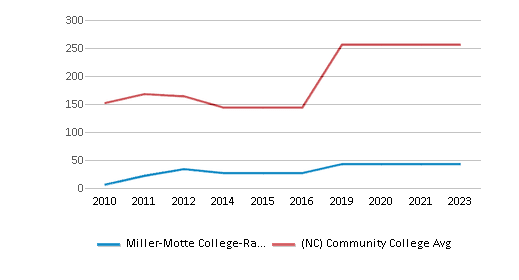
Number of Programs Offered
6
68
Student Body
The student population of Miller-Motte College-Raleigh has declined by 25% over five years.
The student:teacher ratio of 8:1 has increased from 7:1 over five years.
The Miller-Motte College-Raleigh diversity score of 0.57 is less than the state average of 0.66. The school's diversity has stayed relatively flat over five years.
Total Enrollment
354 students
2,542 students
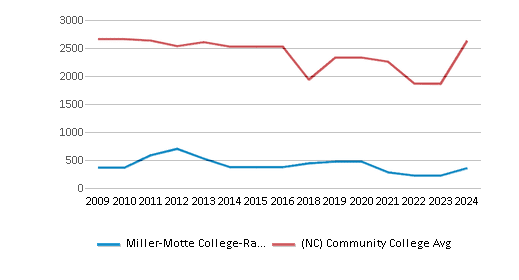
Student : Teacher Ratio
8:1
13:1
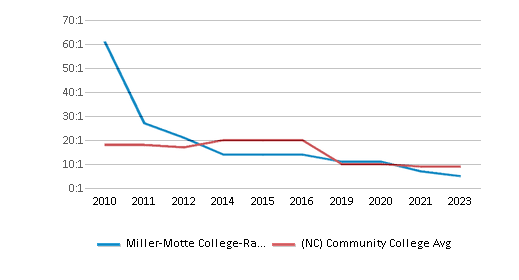
# Full-Time Students
343 students
766 students
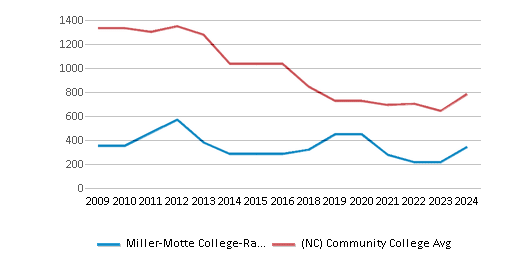
# Part-Time Students
11 students
1,813 students
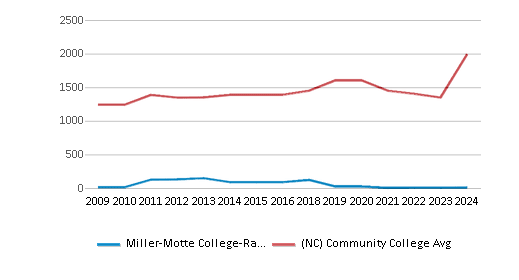
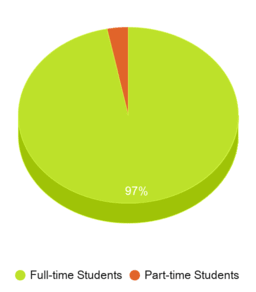
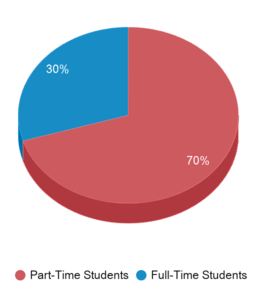
# Enrollment Undergraduate
354 students
316 students
# Full-Time Undergraduate Students
343 students
766 students
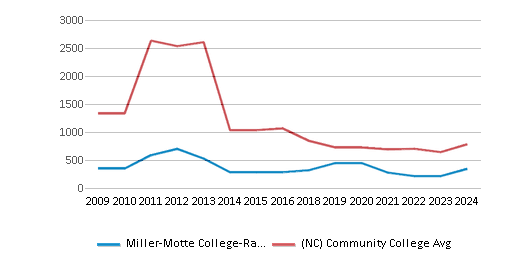
# Full-Time Graduate Students
n/a
22 students
# Part-Time Undergraduate Students
11 students
1,990 students
# Part-Time Graduate Students
n/a
3 students
Total Dormitory Capacity
n/a
717 students
% American Indian/Alaskan
n/a
1%
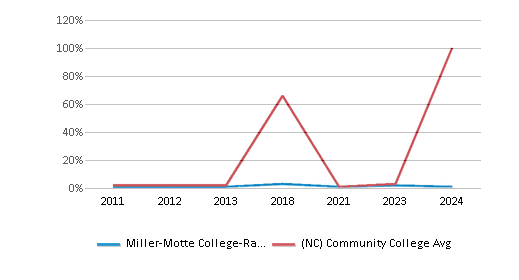
% Asian
2%
3%
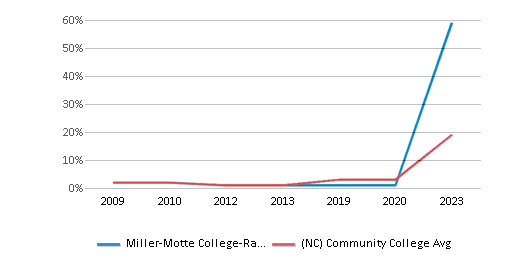
% Hispanic
15%
13%
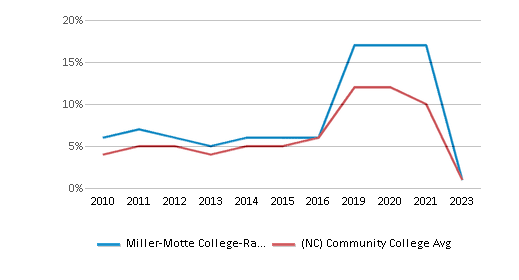
% Black
62%
21%
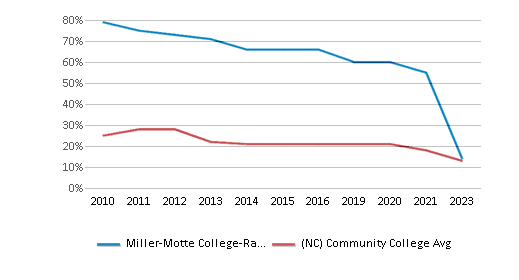
% White
9%
52%
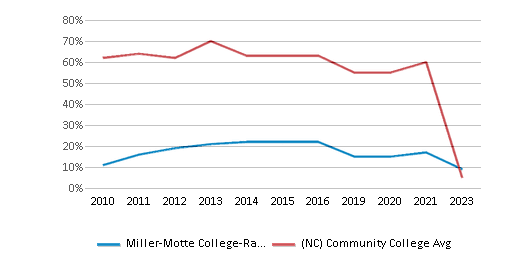
% Hawaiian
n/a
1%
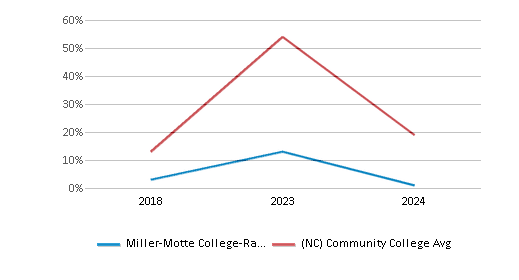
% Two or more races
10%
3%
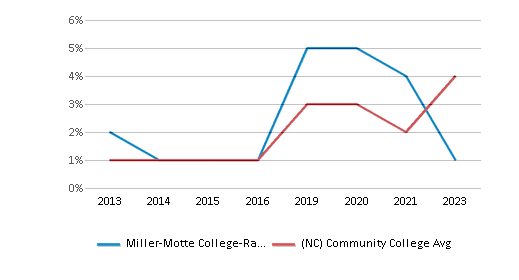
% Non Resident races
n/a
1%
% Unknown races
2%
5%
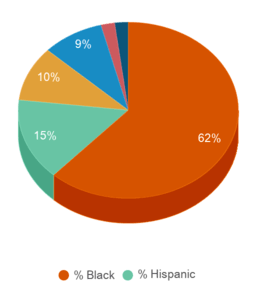
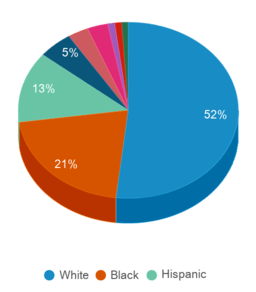
Diversity Score
0.57
0.66
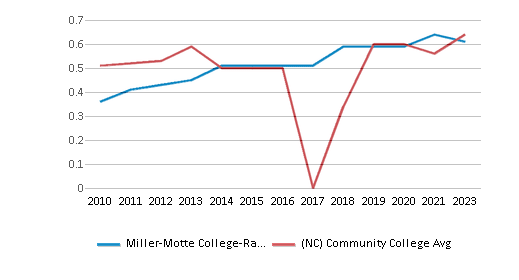
College Completion Rate (Students who graduate in less than 4 years)
0.3741%
0.3684%
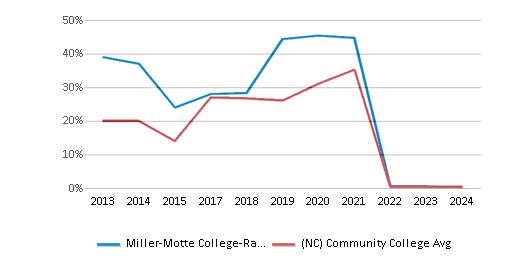
College Completion Rate (Students who graduate in 4 years or more than 4 years)
n/a
0.4286%
Average Graduate Earnings (10 Years)
$20,400
$27,500
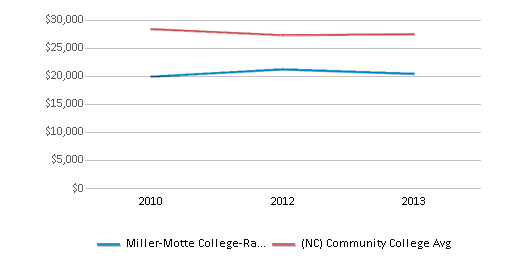
Tuition and Acceptance Rate
The private state tuition of $10,695 is less than the state average of $19,438. The private state tuition has stayed relatively flat over four years.
Private State Tuition Fees
$10,695
$19,438
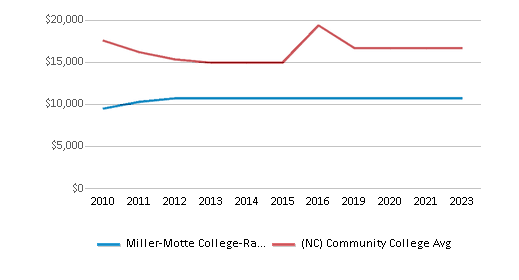
% Students Receiving Some Financial Aid
60%
82%
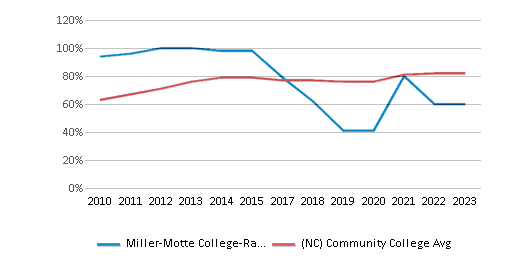
Median Debt for Graduates
$14,000
$11,865
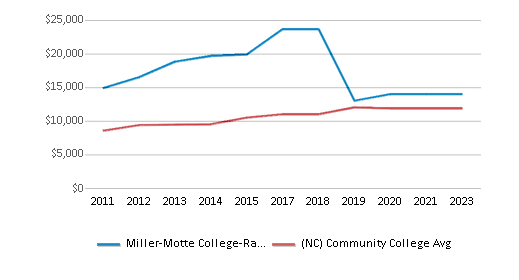
Median Debt for Dropouts
$6,334
$5,846
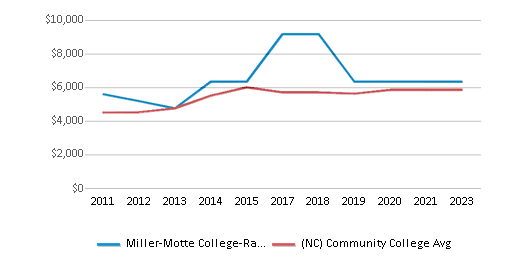
Acceptance Rate
n/a
82%
SAT Reading
n/a
488
SAT Math
n/a
498
ACT Composite
n/a
20
ACT English
n/a
13
ACT Math
n/a
16
Source: 2024 (or latest year available) Integrated Postsecondary Education Data System (IPEDS)
Frequently Asked Questions
How much does Miller-Motte College-Raleigh cost?
Miller-Motte College-Raleigh's private state tuition is approximately $10,695.
What schools are Miller-Motte College-Raleigh often compared to?
Miller-Motte College-Raleighis often viewed alongside schools like Wake Technical Community College by visitors of our site.
What is Miller-Motte College-Raleigh's ranking?
Miller-Motte College-Raleigh ranks among the top 20% of community college in North Carolina for: Average community college minority breakdown.
In what neighborhood is Miller-Motte College-Raleigh located?
Miller-Motte College-Raleigh is located in the Northeast Raleigh neighborhood of Raleigh, NC.
All school names are trademarks and/or registered trademarks of their respective holders. This school is not affiliated with Community College Review and has not endorsed, approved or sponsored this website or directory listing in any manner.
Recent Articles

Obtaining Your Bachelor's Degree at a Community College
Explore the evolving landscape of community colleges offering bachelor's degrees, addressing affordability, accessibility, and workforce needs.

A to Z of Community College Certificates and Courses
From business and healthcare to technology and skilled trades, the article showcases the breadth of options available to students seeking to enhance their knowledge, develop new skills, or pursue career advancement.

What is a Community College?
This comprehensive guide explains what a community college is, its history, and its role in higher education. It covers the types of programs offered, differences from four-year colleges, benefits of attending, and important considerations for prospective students, providing valuable insights for those exploring educational options.





